When the back alleys of history reach Bani Hashem alley / A look at the life of the third innocent
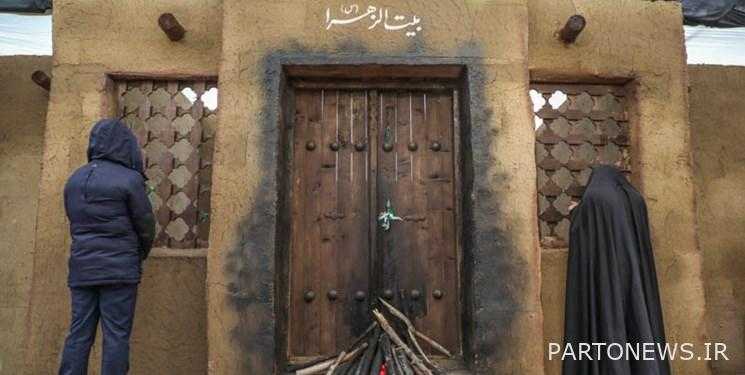
group Family; نعیمه جاویدی: Familiarity with the life of the third innocent; Hazrat Zahra (PBUH) seems necessary for any free human being who wants to review the real position and excellence of women in Islam. If before Islam, women were encouraged by the electricity and sound of their ankles, adorning their faces and hair, showing off and trying to marry famous, powerful and rich men of their time, Islam by presenting models such as Hazrat Khadijeh and Hazrat Zahra (Sa) set aside individual, spiritual and social conduct for women. The life of Ahl al-Bayt (AS) can be studied from different perspectives, but it seems to be one of the most interesting aspects of the historical perspective in cultivating different aspects of his personality.
Now that we are in the days of the second Fatimids and we are the guests of religious gatherings these nights, we can better understand the martyrdom of this Holy Lady by participating in these circles with more knowledge. This report is a “historical-research” and overview with the same purpose.
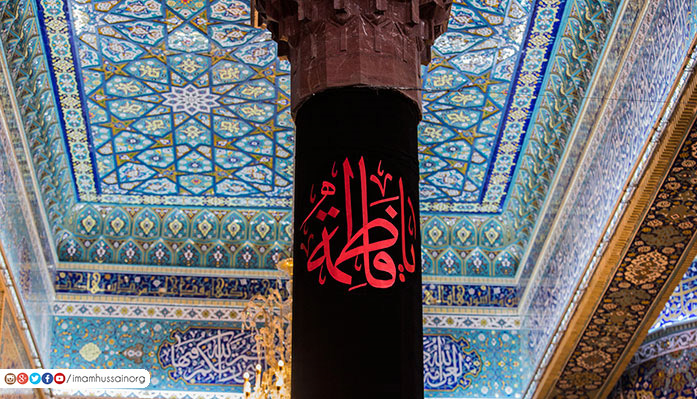
A simple nobleman lived
Hazrat Marzieh (PBUH) was born at the dawn of the 20th of Jamadi Al-Thani, the fifth year of the Besat, in the city of Mecca. Through his father, he was from a tribe of the Bani Hashim lineage, who were among the keymen and veils of the Kaaba. On her mother’s side, the daughter of a businesswoman and noblewoman. According to the history of Hazrat Khadijeh (PBUH), she was one of the richest women in Arab history and one of the 10 richest businessmen of her time. So that no one in Mecca was richer than him. He had trading houses in various countries, including Egypt and Abyssinia, and some historical sources have written that his house was so large that it could accommodate all the people of Mecca. Only a small penny of this lady’s supercar caravan’s fortune; There were 80,000 camels. This lady was so chaste that in the time of ignorance she was called “Tahereh” and “Mobarakeh”. Her chastity during celibacy in the corrupt and polluted environment of that time and receiving such titles by the same people shows that the Prophet chose the best women of his time to form the good lineage of the Ahl al-Bayt (AS). These are given in the seventh volume of the book Al-Asaba Fi Maarefa Al-Sahaba, page 600.
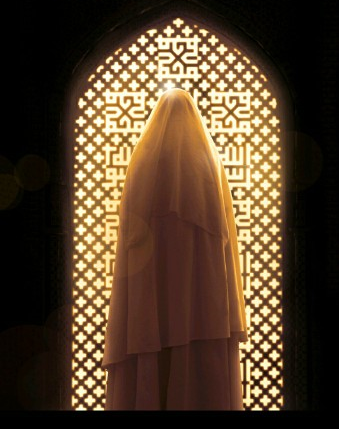
When the mother was left alone …
On page 77 of the book “Dala’il al-Imamah” I have also written that the believers gave birth to Hazrat Khadijeh (PBUH) alone, because the women of Mecca, because of her marriage to the Prophet (PBUH), who did not have worldly wealth, also gave all They cut off their wealth to his wife and left her alone. In the same book and the same page, it is also mentioned that one of the blessings of the existence of Hazrat Zahra (PBUH) before her birth was that she was in love with her mother when she was pregnant and spoke and was her companion. On page 78 of the same book and page 44 of the book “Al-Aqbi Reserves” is also written because the Arab women left Hazrat Khadijeh (PBUH) alone. Pharaoh’s wife), Kulthum (sister of Moses Kalimullah) and Maryam (mother of Jesus Ruhollah) were present at the bedside of Umm Al-Mu’minin.
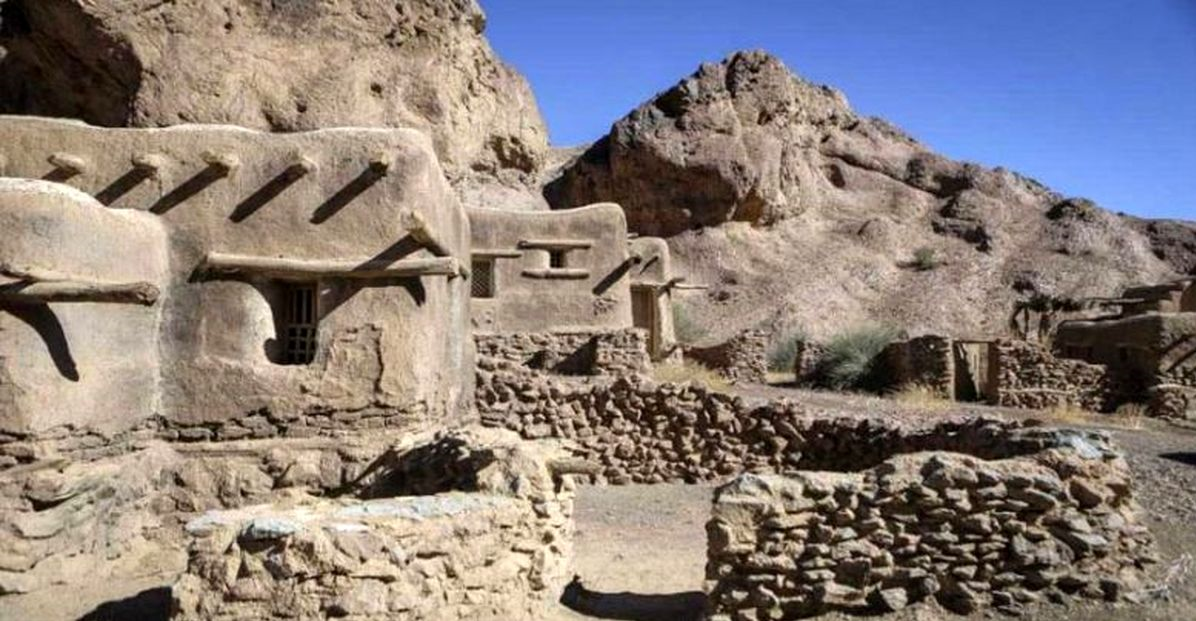
Lady’s life divided into three
There is a lot to be said about the great personality of Hazrat Zahra (PBUH) and in order to get acquainted with her life style, it is better to divide her life into three parts and dedicate each time and study to one dimension of this valuable lady’s life. This method helps one aspect of his life not to be overlooked and the other dimensions not to be neglected and to reach the correct knowledge. But three parts of the lady’s life; From his birth to the emigration of the Prophet (PBUH), from the emigration to the death of the Prophet (PBUH) and from the time of the loss of his father to the martyrdom of the Lady.
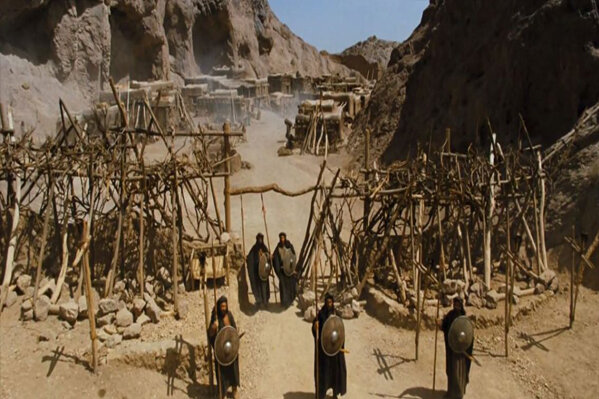
Living in a cruel embargo
One of the neglected aspects in the study of the character of Hazrat Batool (PBUH) is the first part and her childhood, which is less mentioned in pulpits, circles and public gatherings, if she had a prominent role in establishing the character of the Lady of Two Worlds. For example, few people know that the childhood of Hazrat Zahra (PBUH), unlike the daughter of Hazrat Khadijeh (PBUH); They were the richest women in the Arab world. Hazrat spent three years of his childhood, which is said to have been from 2 to 5 years old, in the extremely difficult conditions of “Abitaleb Branches”; The siege of Bani Hashem and the new Muslims by the Quraysh leaders. At the same time, like the rest of the children, they often went hungry while watching their grandparents spend all their wealth to the last coin so that the besieged would not go hungry. This siege lasted for 3 years and the Prophet (PBUH) with a hungry stomach and thin body did not stop preaching Islam and worshiped.
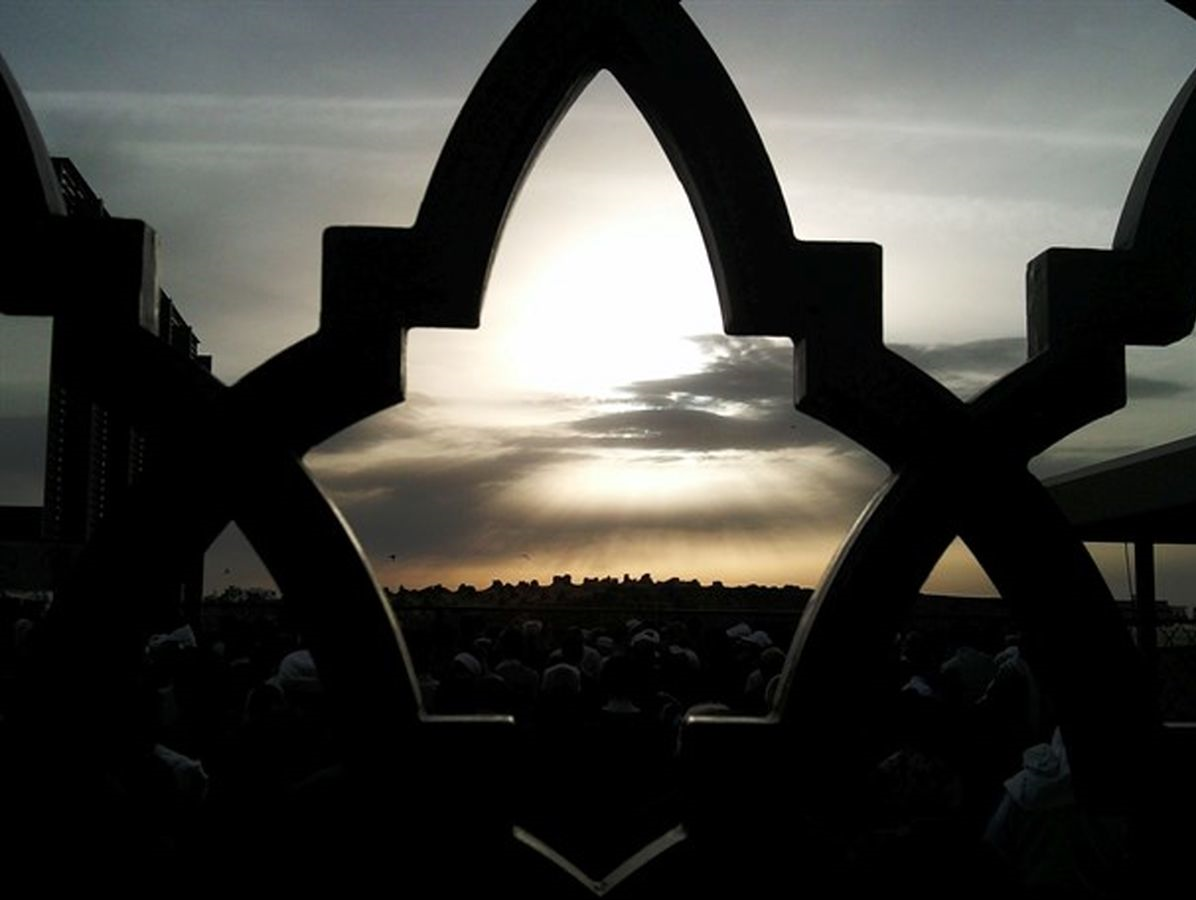
When the mother was full …
At this point in the life of the Imam, which is said to be the first 8 years of his life, shortly after the end of the siege of Abitaleb branches, the Lady of the Two Worlds lost her noble mother. He felt sorry that he soon fell ill and died due to suffering and the effects of starvation. Although Hazrat Zahra (PBUH) mourned her dear mother, she tasted her skin, flesh and bones and learned that her mother went to great lengths to defend the religion of God and the prophetic sanctity. This issue became the model of his behavior years later and he defended the sanctity of the province and Alavi by sacrificing his life.
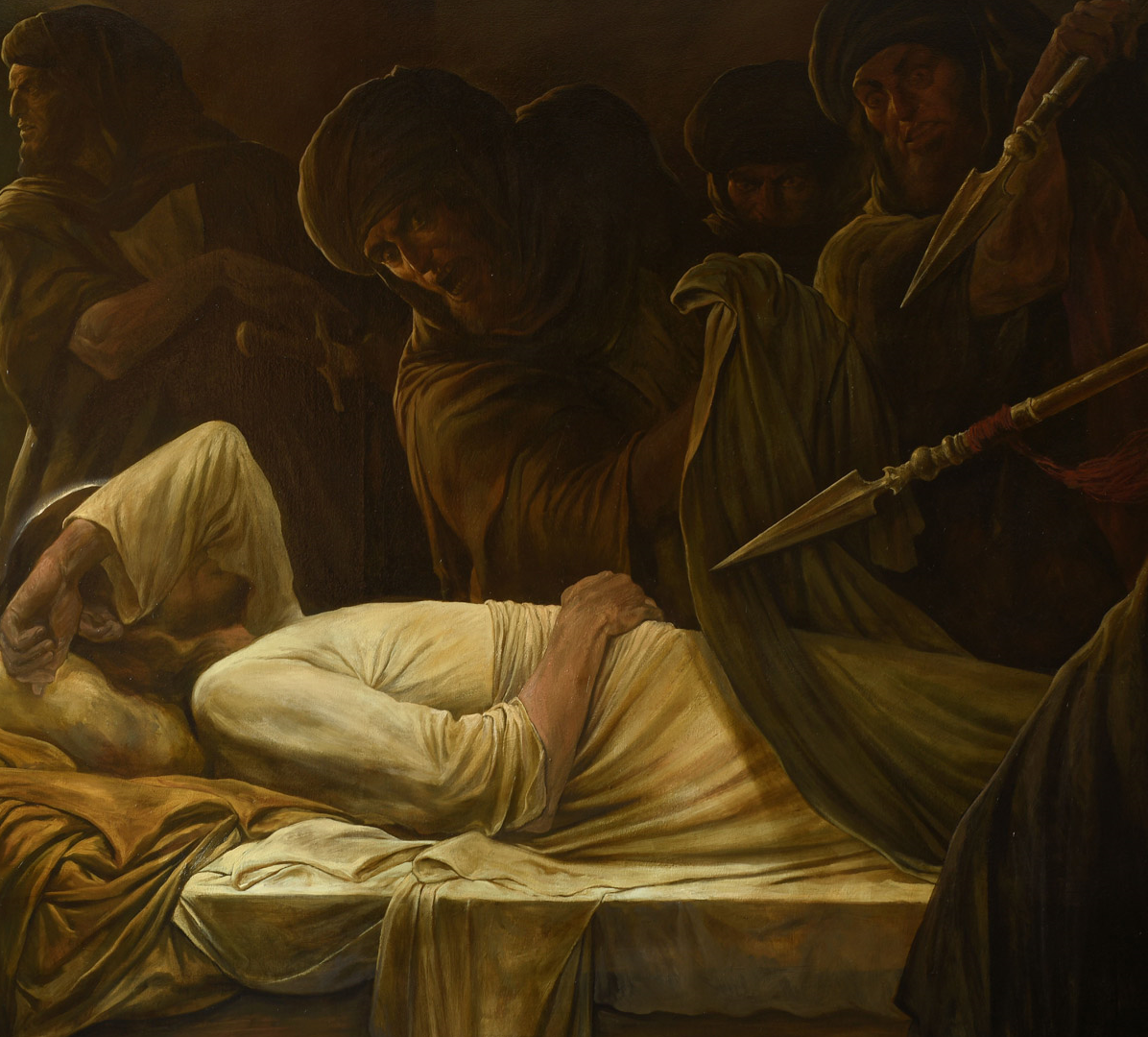
God wanted the father to live …
But in the second period of the life of Hazrat Zahra (PBUH) another important event happened; Migration to Medina. The leaders of the Quraysh, who saw that they could not dissuade the Prophet (PBUH) and the new Muslims from Islam through sanctions and pressure, plotted to assassinate the Prophet of God, which was recorded in history that night as “Laylat al-Mubayt”. Since the Prophet was from a well-known family and his murder was followed by bloodshed, in order to tie Bani Hashem’s hand to bloodshed, it was decided that one representative from each tribe would be present for the murder, in which case Bani Hashem could not go to war with all tribes. Be. This conspiracy was, of course, thwarted by the Prophet’s migration to Medina and the sleeping of Imam Ali (as) in his bed. On page 237 of the first volume of the book “Al-Tabqat al-Kubra”, written after this incident, although difficult, the migration of the rest of the Muslims, Hazrat Zahra (PBUH) with Fatemeh bint Asad (PBUH) and … to Yathrib (Medina) began and the Muslims The Prophet of God joined.
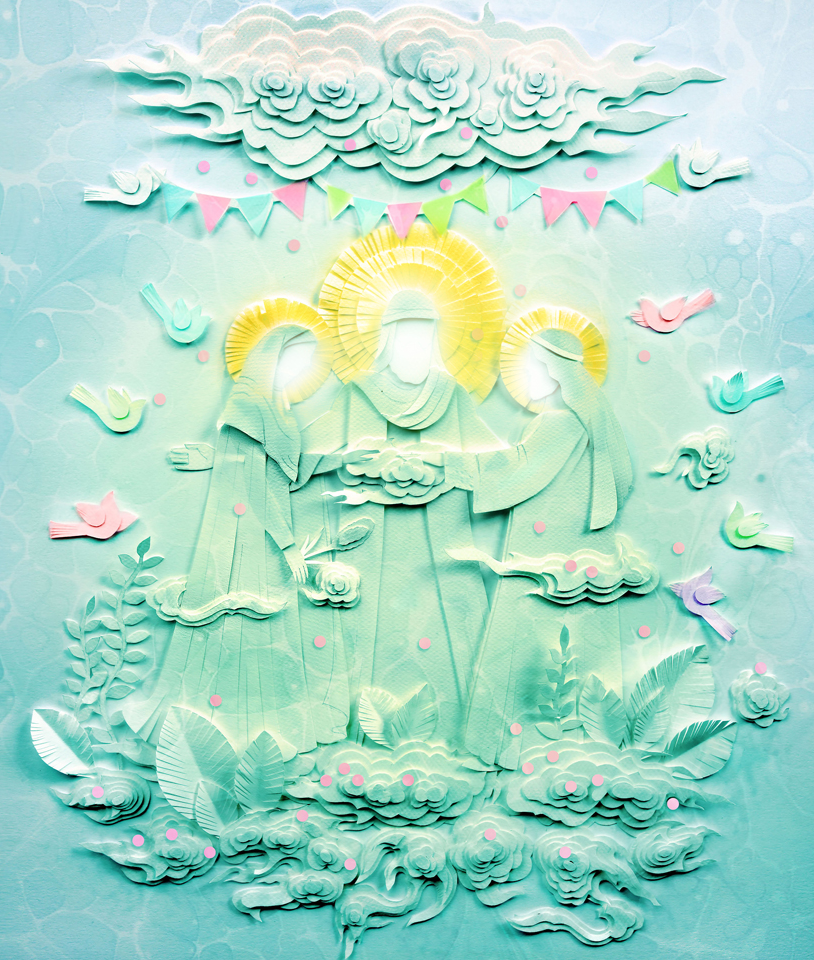
A new pattern for marriage
On pages 282 to 288 of the second volume of the book “Promoters of Gold and the Mines of the Substance”, a relatively detailed reference is made to the story of the Prophet’s marriage at this point in their lives. Tasting and experiencing the hard days of Abitaleb branches caused Hazrat Umm Abiha (PBUH) to learn to endure hardships in the way of God and like their grandmother, despite having rich and famous suitors, they chose Hazrat Ali (AS) who, although a capital for marriage He had nothing but his “shield” and “sword”, but he received a positive answer, and their simple means of subsistence were provided by selling the same shield. Like their mother, Hazrat Marzieh (PBUH) was repeatedly ridiculed and criticized for not marrying the merchants and leaders who wanted her, but she replied that she had considered God’s approval, and if it were not for the Commander of the Faithful (PBUH), a man worthy of marrying her would not have been there. Could not be found. The way of choosing and marrying Khadijeh (PBUH) and Fatima (PBUH) had a great impact on the women of that time and upgraded the criteria from mere attention to “fame”, “power” and “wealth” to “worship” and “humanity”. Dad.

Mubahila, Ghadir and the absence of a father …
Another important event in this part of the Prophet’s life is the story of “Mubahala” in which a group of Christians refused to accept the invitation of the Prophet (PBUH) to Islam and called for “Mubahala” or the curse ceremony to recognize the truth. Many Christians came with their families and the Holy Prophet (PBUH) left with only five people. The elders of Christianity, seeing their faces, realized that the souls and claims of 5 people were right, so they demanded an end to the controversy, and since then they have been paying Jizyah to the Islamic State every year. The incident of “Ghadir” is also one of the most important events of this period that the Prophet (PBUH) in “Farewell Hajj” declared his last Hajj in the flood of people in the area of Ghadir Kham after Imam Ali, the ruler of the religion of God, the rightful guardian and guardian. And recited that famous sermon of Ghadir. But the most important event in this part of the life of Hazrat Marzieh (PBUH) that affected her life, the family of the Prophet (PBUH) and the future of Islam is the death of their noble father; It was the end of the messengers. This period of the life of Hazrat Mohaddeseh (PBUH) lasted 10 years and considering the previous period, now the ladies had reached 18 years of age.
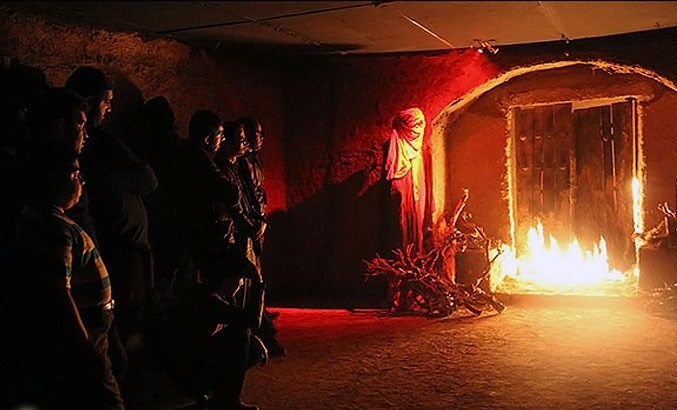
Invite your spouses to the right
After the death of the Messenger of God, the third and very difficult part of the life of Hazrat Batool (PBUH) began. In history, different periods have been written for this section, which can be for 30 to 240 days; He mentioned the length of his life after his father. The days when defending the right of his guardianship, trying to take back Fadak and defending the right passed. In the absence of her father, the daughter of the Prophet was either reciting the sermon and defending the truth for days, or it was written on the grave of her father present and mourning that his life span was from one month, several months to less than a year. Banu used to recite sermons in the mosque every day. It was introduced and explained by the Holy Prophet (PBUH), do not be silent. At night, she prayed, worshiped, and mourned for her father
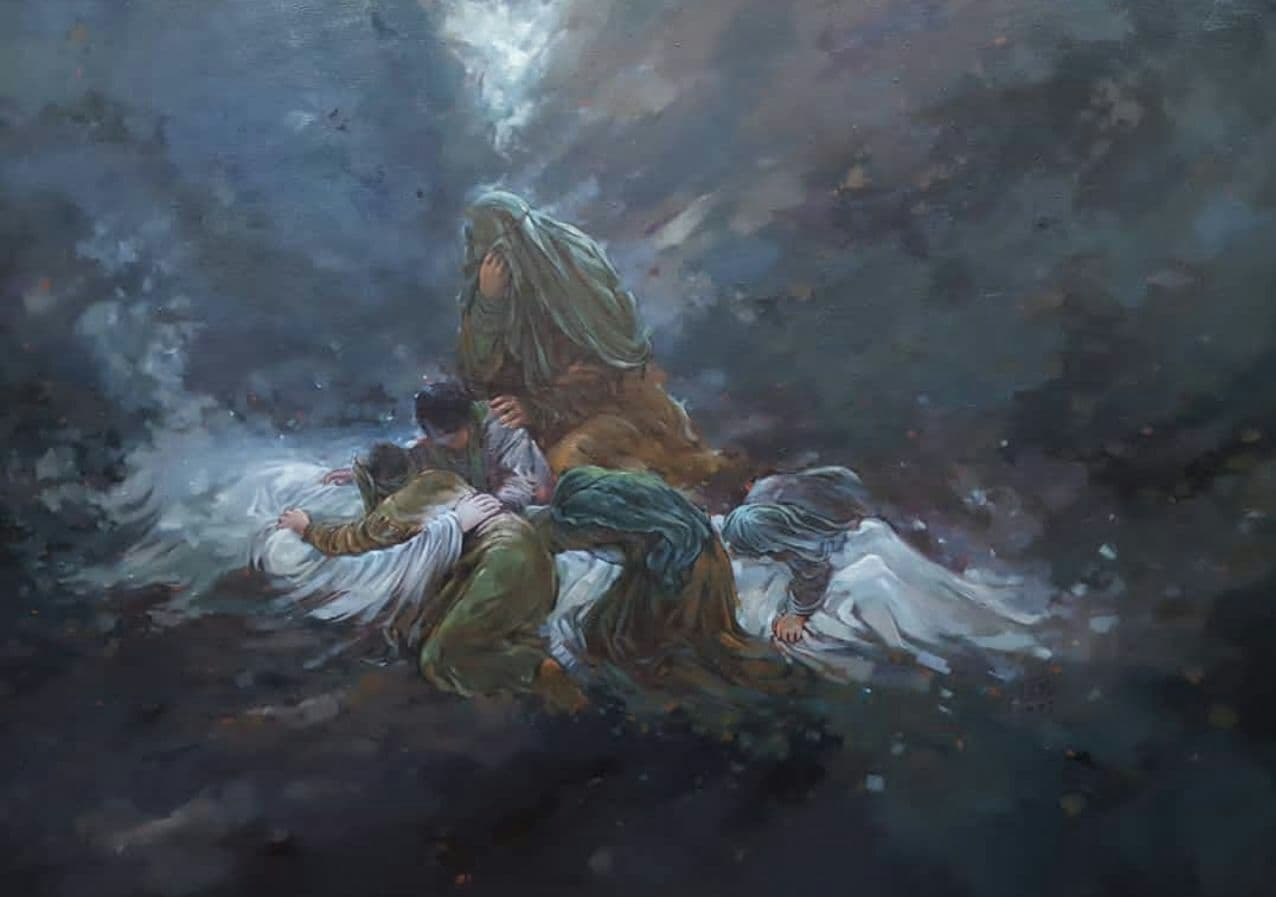
Advertising and enlightenment by night burial
Zakia (PBUH) was so zealous and steadfast in defending the right that the enemies decided to surrender their interests by setting fire to their house and attacking this family. He prevented them from entering the house. In this arch, they were severely wounded due to a strong blow inflicted on Susan by the enemy and the gap between the door and the wall, and the child they were on the way was aborted. After these days, painful days passed for him. The women of Muhajireen and Ansar came to visit the Imam who had fallen in bed, but the Imam turned them away.
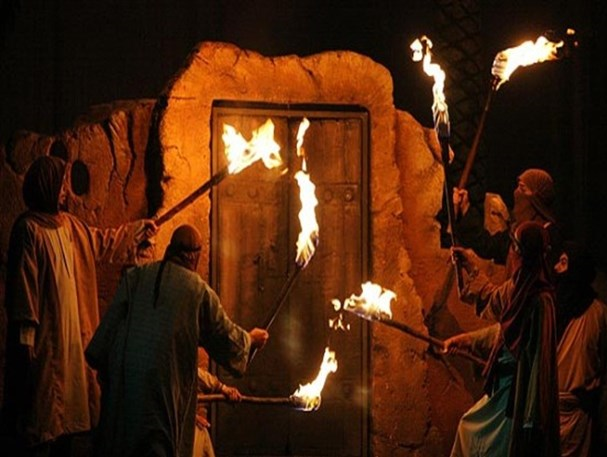
In the last hours of her blessed life, Hazrat Zahra (PBUH) did not stop fighting and propagandizing, and by asking for “secret and secret burial”, she wanted to announce her protest to the society of the time so that the negligent, murderers and usurpers of the day would not be among the night mourners. In the second volume of “Ayoun Akhbar al-Reza” by Sheikh Saduq, page 278, these details are mentioned and it is said that only a handful of the companions of the Prophet (PBUH) such as Aqeel, Ammar, Miqdad, Salman, Abu Dharr and Barida were present at the funeral of this heavenly body. A young lady whose diary and footprint of 18 years of life in history from birth to martyrdom is a practical Fatimid way of life for all of us, especially Muslim women.
End of message /
You can edit this post
Suggest this for the front page
.

